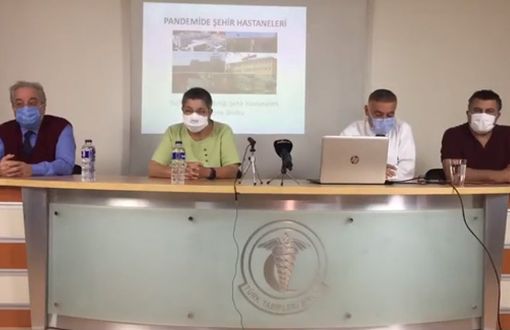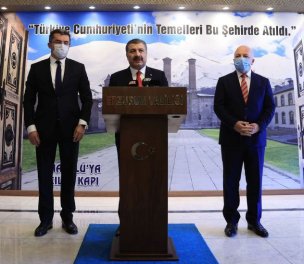Click to read the article in Turkish
The Turkish Medical Association (TTB) held a press conference on Friday (May 21) and shared the results of its survey on city hospitals, which have been built as part of public-private partnership projects and widely criticized for a number of other reasons, such as the closure of public hospitals in their vicinity and the difficulties in accessing them.
As part of its survey, the TTB asked healthcare personnel of city hospitals a number of questions on a wide range of topics, from their employee personal rights and service delivery to hospital security and use of resources. 230 people from 13 city hospitals answered these 39 questions; the answers of 219 respondents have been taken under consideration.
'City hospitals fail to respond to needs'
Making the opening speech at the press conference, TTB Central Council Chair Prof. Şebnem Korur-Fincancı underlined that it would be more correct if the related hospitals were called "company hospitals", as it is also seen in the works of the TTB City Hospitals Working Group.
TTB 2nd Chair Assoc. Prof. Ali İhsan Ökten also noted, "Especially in the peak periods of the pandemic, city hospitals failed to respond to the needs. For this reason, in the provinces where city hospitals have been opened, the closed hospitals must be opened. Giving up this project as soon as possible would be much more beneficial for the economy of our country, which has pledged both the healthcare system and the future."
'Outpatient applications on the decrease'
The TTB then moved on to share the results of the survey. The following information has been shared for "healthcare service delivery":
* 72.9 percent of the healthcare laborers indicated that the number of outpatient applications decreased.
* While the number of inpatient applications decreased according to 41.6 percent of the participants, 45.2 percent of the participants said that the number of inpatient applications increased.
* The number of patients coming to the emergency service decreased according to 3.3 percent of the respondents, while 49.3 percent of the respondents said that the number of emergency applications increased.
* 88.1 percent of the respondents said that the number of elective cases decreased. (Elective surgery refers to a surgery that needs to be done to protect a patient's life, but does not have to be done immediately.)
* 43.8 percent of the participants said that the massive size of space led to negative consequences, while 37.9 percent said that the spatial magnitude of city hospitals had positive results.
* According to 65.3 percent of health laborers, there are problems with services of sterilization and disinfection.
* 72.1 percent of the respondents of the survey indicated that the high number of closed spaces, the length of the halls and the long distance between the towers in city hospitals caused problems.
* 63.5 percent of the participants were of the opinion that the contagion risk was increased by the fact that hospitals were large and that the numbers of hospital beds and hospital attendants were high.
* According to 81.7 percent of health laborers, the infection risk was increased by the fact that the hospitals were located at the outskirts of cities and that patients were forced to use public transportation.
* According to 66.2 percent of health laborers, patients' safety was negatively affected in city hospitals. (AS/SD)






